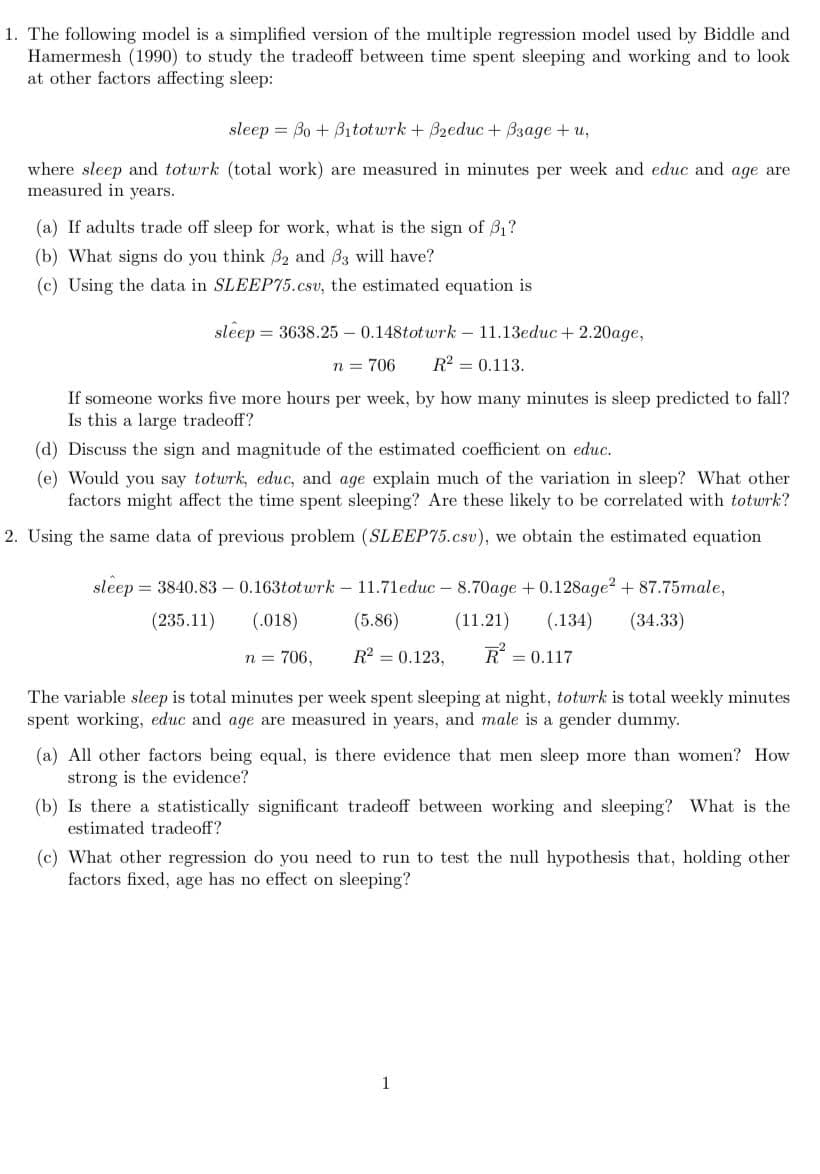1. The following model is a simplified version of the multiple regression model used by Biddle and Hamermesh (1990) to study the tradeoff between time spent sleeping and working and to look at other factors affecting sleep: sleep = Bo + B1totwrk+ B2educ + B3age + u, where sleep and totwrk (total work) are measured in minutes per week and educ and age are measured in years. (a) If adults trade off sleep for work, what is the sign of B1? (b) What signs do you think 32 and B3 will have? (c) Using the data in SLEEP75.csv, the estimated equation is sleep = 3638.25 - 0.148totwrk - 11.13educ+2.20age, n = 706 R = 0.113. If someone works five more hours per week, by how many minutes is sleep predicted to fall? Is this a large tradeoff?
Correlation
Correlation defines a relationship between two independent variables. It tells the degree to which variables move in relation to each other. When two sets of data are related to each other, there is a correlation between them.
Linear Correlation
A correlation is used to determine the relationships between numerical and categorical variables. In other words, it is an indicator of how things are connected to one another. The correlation analysis is the study of how variables are related.
Regression Analysis
Regression analysis is a statistical method in which it estimates the relationship between a dependent variable and one or more independent variable. In simple terms dependent variable is called as outcome variable and independent variable is called as predictors. Regression analysis is one of the methods to find the trends in data. The independent variable used in Regression analysis is named Predictor variable. It offers data of an associated dependent variable regarding a particular outcome.

Trending now
This is a popular solution!
Step by step
Solved in 4 steps






